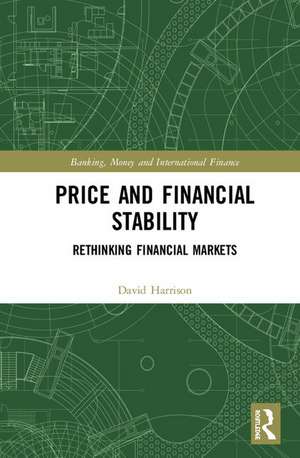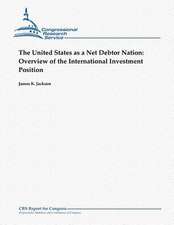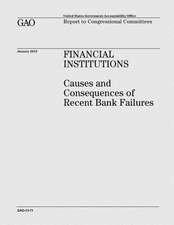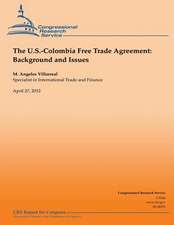Price and Financial Stability: Rethinking Financial Markets: Banking, Money and International Finance
Autor David Harrisonen Limba Engleză Hardback – 23 mai 2018
| Toate formatele și edițiile | Preț | Express |
|---|---|---|
| Paperback (1) | 389.38 lei 6-8 săpt. | |
| Taylor & Francis – 14 aug 2020 | 389.38 lei 6-8 săpt. | |
| Hardback (1) | 761.36 lei 6-8 săpt. | |
| Taylor & Francis – 23 mai 2018 | 761.36 lei 6-8 săpt. |
Din seria Banking, Money and International Finance
-
 Preț: 312.97 lei
Preț: 312.97 lei -
 Preț: 279.86 lei
Preț: 279.86 lei -
 Preț: 313.57 lei
Preț: 313.57 lei -
 Preț: 389.38 lei
Preț: 389.38 lei - 18%
 Preț: 1000.27 lei
Preț: 1000.27 lei - 20%
 Preț: 347.76 lei
Preț: 347.76 lei -
 Preț: 493.37 lei
Preț: 493.37 lei - 17%
 Preț: 271.20 lei
Preț: 271.20 lei - 18%
 Preț: 998.40 lei
Preț: 998.40 lei - 31%
 Preț: 767.47 lei
Preț: 767.47 lei - 18%
 Preț: 908.65 lei
Preț: 908.65 lei - 12%
 Preț: 298.61 lei
Preț: 298.61 lei -
 Preț: 383.17 lei
Preț: 383.17 lei -
 Preț: 391.99 lei
Preț: 391.99 lei - 18%
 Preț: 904.93 lei
Preț: 904.93 lei - 18%
 Preț: 1109.04 lei
Preț: 1109.04 lei - 18%
 Preț: 1004.24 lei
Preț: 1004.24 lei -
 Preț: 387.83 lei
Preț: 387.83 lei -
 Preț: 389.38 lei
Preț: 389.38 lei - 12%
 Preț: 312.24 lei
Preț: 312.24 lei - 20%
 Preț: 275.07 lei
Preț: 275.07 lei - 20%
 Preț: 259.98 lei
Preț: 259.98 lei - 20%
 Preț: 272.43 lei
Preț: 272.43 lei - 26%
 Preț: 763.39 lei
Preț: 763.39 lei -
 Preț: 430.00 lei
Preț: 430.00 lei - 20%
 Preț: 880.34 lei
Preț: 880.34 lei - 31%
 Preț: 762.24 lei
Preț: 762.24 lei - 18%
 Preț: 886.46 lei
Preț: 886.46 lei - 19%
 Preț: 271.43 lei
Preț: 271.43 lei - 18%
 Preț: 1001.87 lei
Preț: 1001.87 lei - 28%
 Preț: 654.89 lei
Preț: 654.89 lei - 18%
 Preț: 903.04 lei
Preț: 903.04 lei - 18%
 Preț: 1005.04 lei
Preț: 1005.04 lei - 18%
 Preț: 1001.24 lei
Preț: 1001.24 lei - 31%
 Preț: 767.07 lei
Preț: 767.07 lei - 31%
 Preț: 764.20 lei
Preț: 764.20 lei
Preț: 761.36 lei
Preț vechi: 1101.12 lei
-31% Nou
Puncte Express: 1142
Preț estimativ în valută:
145.69€ • 158.75$ • 122.76£
145.69€ • 158.75$ • 122.76£
Carte tipărită la comandă
Livrare economică 23 aprilie-07 mai
Preluare comenzi: 021 569.72.76
Specificații
ISBN-13: 9781138299146
ISBN-10: 1138299146
Pagini: 126
Dimensiuni: 156 x 234 x 11 mm
Greutate: 0.3 kg
Ediția:1
Editura: Taylor & Francis
Colecția Routledge
Seria Banking, Money and International Finance
Locul publicării:Oxford, United Kingdom
ISBN-10: 1138299146
Pagini: 126
Dimensiuni: 156 x 234 x 11 mm
Greutate: 0.3 kg
Ediția:1
Editura: Taylor & Francis
Colecția Routledge
Seria Banking, Money and International Finance
Locul publicării:Oxford, United Kingdom
Public țintă
Postgraduate and UndergraduateCuprins
Preface; 1 A brief history of our time; 2 Expectations, knowledge and prices; 3 Beyond price; 4 Savings, investment and liquidity; 5 Models, theories and apples; 6 Policy implications – finance; 7 Competition policy; 8 A new European capital market; 9 Geopolitics; Technical annex: Do we really need a new Bretton Woods?
Notă biografică
David Harrison is Legal Director at London law firm DAC Beachcroft LLP, UK. He previously held several positions relating to economic and international affairs, including speechwriter for the UK Foreign Secretary and for the President of the European Bank for Reconstruction and Development. Previous publications include The Organisation of Europe (Routledge, 1995) and Competition Law and Financial Services (Routledge, 2014).
Recenzii
"How do producers form the expectations necessary to commit to new capital investment when the future is radically uncertain? How does the price system diffuse knowledge about prices? Is that knowledge reliable? These are among the crucial questions in economics. Drawing on the teaching of great 20th century philosophers such as Karl Popper as well as economists such as Maynard Keynes and Hyman Minsky, David Harrison offers an original analysis of these questions - and a solution.
Authorities such as central banks, financial regulators and competition authorities should promote the public good of relative asset price stability. A new monetary standard, based on underlying yields, would not only reduce the severity of financial crises but also stimulate new investment, thus restoring the dynamism of the market economy." — Robert Pringle, Chairman of Central Banking journal, and author of The Money Trap
"David Harrison makes valuable contributions to understanding the underlying causes of the persistent instability of the financial system. Guided by the insights of some great thinkers of the last century - Hayek, Keynes and Popper - he shows that financial asset prices are inherently too volatile to be entrusted to overly emotional speculators. His suggestions for a better way are intriguing. This is an excellent introduction for newcomers to this debate, and a stimulating addition for weary veterans." — Edward Hadas, Economic and financial journalist, and Reuters Breakingviews columnist
"David Harrison shows that, in the decades since the end of the Bretton Woods system, many political crises turn out to have an economic origin - and that most economic crises are rooted in finance. How to stabilise financial markets and harness short-term speculation for more productive long-term investment remains a major unsolved global policy problem, with important implications for the UK and Europe as a who
Authorities such as central banks, financial regulators and competition authorities should promote the public good of relative asset price stability. A new monetary standard, based on underlying yields, would not only reduce the severity of financial crises but also stimulate new investment, thus restoring the dynamism of the market economy." — Robert Pringle, Chairman of Central Banking journal, and author of The Money Trap
"David Harrison makes valuable contributions to understanding the underlying causes of the persistent instability of the financial system. Guided by the insights of some great thinkers of the last century - Hayek, Keynes and Popper - he shows that financial asset prices are inherently too volatile to be entrusted to overly emotional speculators. His suggestions for a better way are intriguing. This is an excellent introduction for newcomers to this debate, and a stimulating addition for weary veterans." — Edward Hadas, Economic and financial journalist, and Reuters Breakingviews columnist
"David Harrison shows that, in the decades since the end of the Bretton Woods system, many political crises turn out to have an economic origin - and that most economic crises are rooted in finance. How to stabilise financial markets and harness short-term speculation for more productive long-term investment remains a major unsolved global policy problem, with important implications for the UK and Europe as a who
Descriere
This book builds on the insights of economists Frank Knight and John Maynard Keynes that uncertainty of the future is essential to understand the processes of economic production and capital investment, and adds to this Karl Popper's general explanation of how expectations of an uncertain future are formed and tested through a trial and error process. Rather than relying on fluctuating financial prices to provide a guide to an uncertain future, it suggests a better approach would be to adopt the methods common to other branches of science, and create testable (falsifiable) theories allowing reasonable predictions to be made.



























